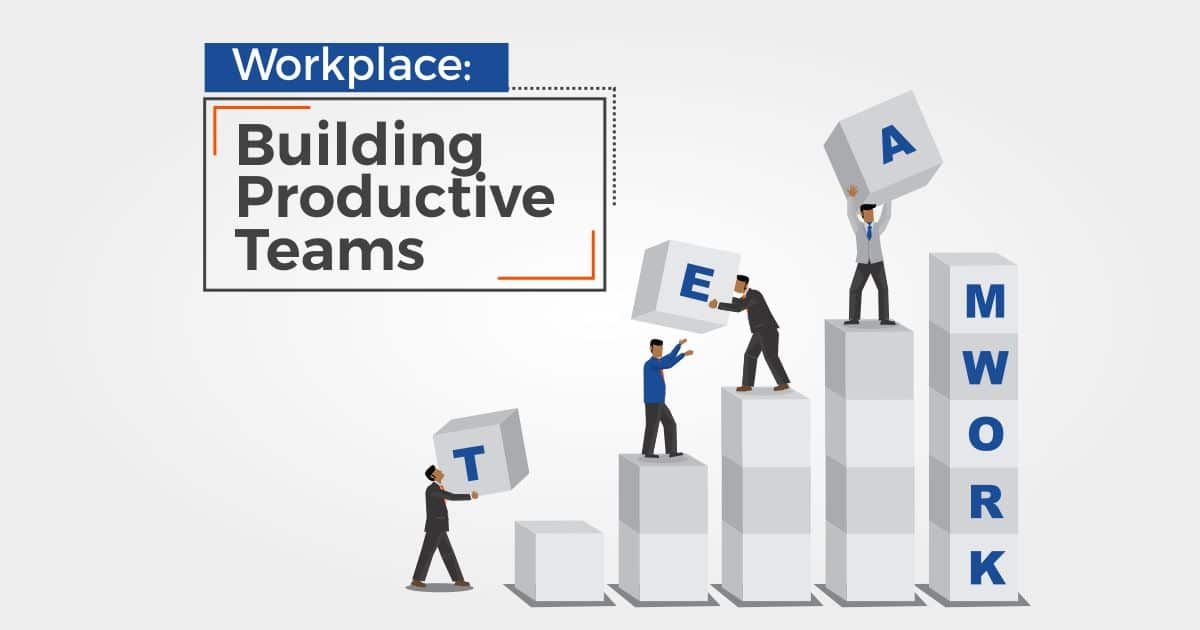Performance indicators all over the world have shown that a team of the best and brightest of employees will almost always outperform individual talent or people working individually on the same tasks. It becomes even more pronounced in high-pressure working situations when a diverse range of skill sets are needed especially when deadlines are not flexible.
As an employer, you should be supremely concerned about the performance and relationship between members of your teams. More employers like you are beginning to see the inherent benefits of maintaining a productive team and have factored this into their short-term and long-term plans.
You don’t want a team where productivity is hinged on what each individual employee is capable of achieving. Rather, you want to maximise their collective productivity by creating an enabling environment for team building.
Building productive teams cannot be achieved by casting a spell. Rather, there are steps you can follow to build productive and effective teams within the workplace.
Table of Contents
Step 1: Lay a Foundation For Good Leadership
As an employer or manager, you can’t possibly be physically present with your employees at all times. Your goal should be aimed at building productive teams that can function optimally in your absence.
When your employees trust you and respect you, they will push themselves to be productive and responsible regardless of whether you are physically available or not.
Before you commence working on making on making your teams more productive, it’s important to develop the necessary level of leadership skills you need to train them.
Being a good leader does not mean you have to be excessively authoritative, insensitive and strict when dealing with your team. Rather, focus on building trust through good communication, honesty, transparency and motivation.
Step 2: Build a Solid Relationship With Each Employee
The next step of building productive teams within your organisation is to dedicate time to know members of your team on an individual basis. Your conversation with them should be tailored to knowing their more about their skillset, aspects of their jobs that they are more excited about, things that motivate them as well as their likes and dislikes.
What this does is that it arms you with the knowledge needed to know the competencies of your employees to a point where you know where they are best suited to maximise their potential and productivity. When members of your team are productive and engaged, increases their job satisfaction score, which in turn leads them to become even more productive.
Another way to build a relationship with them on an individual basis is by getting them involved in your decision-making process. Instead of just assigning them to tasks, consider giving them open-ended tasks that give them more freedom to make decisions on tasks they are working on. This helps them develop their problem-solving skills.
Step 3: Establish Good Relationship Between Employees
Take out time to observe how members of your team work together. The idea behind this is to engender more effective communication and trust within the team.
If you discover any sort of conflict within your teams at work, attend to such conflicts swiftly with a view to resolving their differences amicably.
Before you reach a decision, make sure you listen to both parties involved. Your role should be that of a mediator. Keep it objective.
Step 4: Encourage Teamwork
When it comes to your building productive teams, it’s important to establish communication with your employees as well as within the collective team. The team should have a culture of sharing information with its members as well as with the organisation as a whole.
As an employer or manager, it is also your responsibility to communicate more with the team. This communication goes beyond emails and meetings. It borders around members of the team being able to voice their concerns and suggestions. You should focus on providing assistance and guidance where it is necessary. Ensure your communication is clear and honest.
Step 5: Establish Ground Rules
The final step towards building productive teams within your company is to create goal and team values. You must also find a way of striking a balance between evaluating team performance and individual performance.
Carry the teams along as you set these ground rules so that they know what your expectations are and take responsibility for them.
Final Thoughts
Building productive teams is one of your essential responsibility as a manager/employer. It is not a short-term goal. Rather, it is one to be enshrined within the culture of your organisation.
It is a process and the more it unfolds, the deeper the level of trust members of your team will begin to have in one another. It also strengthens the level of support they are willing to give to other members of the team.
Always remembers that different members of the team have different strengths and weaknesses. the longer they work together, the more they learn to complement one another with their respective skillset.











